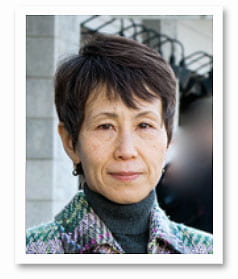 Ryuko Kubota is Professor in the Department of Language and Literacy Education in the Faculty of Education at the University of British Columbia, Canada. She is a teacher educator in second/foreign languages and a specialist in Japanese as a foreign language. She has previously taught at the University of North Carolina at Chapel Hill and elsewhere in North America and in Japan. Her research draws on critical applied linguistics, critical multiculturalism, critical race theory, and critical pedagogy. She is a co-editor of Race, culture, and identities in second language: Exploring critically engaged practice (Routledge 2009) and Demystifying career paths after graduate school: A guide for second language professionals in higher education (Information Age Publishing 2012). She has also published articles in academic journals, such as Journal of Second Language Writing, Canadian Modern Language Review, Critical Inquiry in Language Studies, International Journal of Bilingualism and Bilingual Education, Journal of Multilingual and Multicultural Development, L2 Journal, Linguistics and Education, Modern Language Journal, TESOL Quarterly, Written Communication, and World Englishes. She has been actively involved in the American Association for Applied Linguistics, International Society for Language Studies, and Teachers of English to Speakers of Other Languages.
Ryuko Kubota is Professor in the Department of Language and Literacy Education in the Faculty of Education at the University of British Columbia, Canada. She is a teacher educator in second/foreign languages and a specialist in Japanese as a foreign language. She has previously taught at the University of North Carolina at Chapel Hill and elsewhere in North America and in Japan. Her research draws on critical applied linguistics, critical multiculturalism, critical race theory, and critical pedagogy. She is a co-editor of Race, culture, and identities in second language: Exploring critically engaged practice (Routledge 2009) and Demystifying career paths after graduate school: A guide for second language professionals in higher education (Information Age Publishing 2012). She has also published articles in academic journals, such as Journal of Second Language Writing, Canadian Modern Language Review, Critical Inquiry in Language Studies, International Journal of Bilingualism and Bilingual Education, Journal of Multilingual and Multicultural Development, L2 Journal, Linguistics and Education, Modern Language Journal, TESOL Quarterly, Written Communication, and World Englishes. She has been actively involved in the American Association for Applied Linguistics, International Society for Language Studies, and Teachers of English to Speakers of Other Languages.
Neoliberal Ideology of English and Language Choices in Transnational Workplaces in Asia
Ryuko Kubota, University of British Columbia
This presentation challenges the neoliberal language ideology related to global English by examining language choices among Japanese transnational workers in Asia. It also addresses contradictions related to the workers’ views, neoliberal language education policies, the multi/plural turn in applied linguistics, and global capitalism.
In many countries, English language teaching is promoted in schools and universities based on two assumptions: English is the most useful international language and English skills bring individual and national economic benefits. Constituting a language ideology, these assumptions drive many governments to implement monoglossic language education policies, such as offering English-medium/only instruction, hiring native speakers of English, and using standardised tests. This ideology is closely linked to a neoliberal promotion of human capital. In Japan, the business sector has indeed lobbied for enhancing English language teaching. This neoliberal language ideology can be scrutinised by investigating business communication in non-English-dominant countries.
Through qualitative interviews with Japanese company employees who have worked in China, Korea, and Thailand, this exploratory study investigated what languages they used in workplaces and what factors they regarded as important in transnational communication. As this presentation will show, the language choices and entrepreneurial dispositions counter the ideology of English as a universal language. Yet, the differences in the three countries indicate that colonial relations of power need to be taken into account in understanding language choices. The results also contradict neoliberal English language education policies lobbied by the corporate sector. Although the interviewees’ accounts seem to correspond to the current scholarly emphasis on multiple, hybrid, and translingual practices, they also raise questions about whether the multi/plural turn in applied linguistics might actually resonate with neoliberalism. Although the interviewees’ accounts challenge the language ideology, their affiliation is firmly embedded in capitalism. Ultimately, both workers’ entrepreneurial dispositions and monoglossic language education policies are entangled in capitalist interests.
